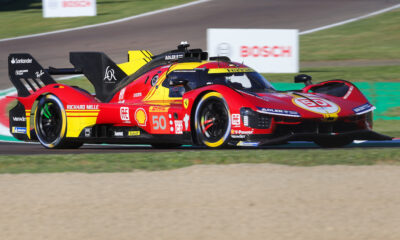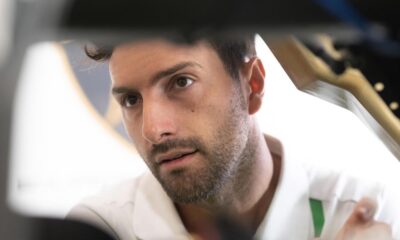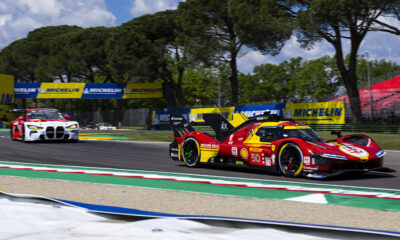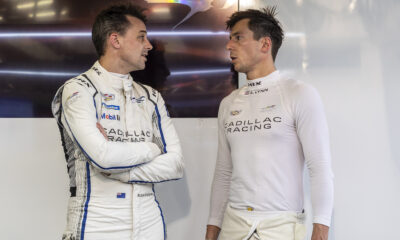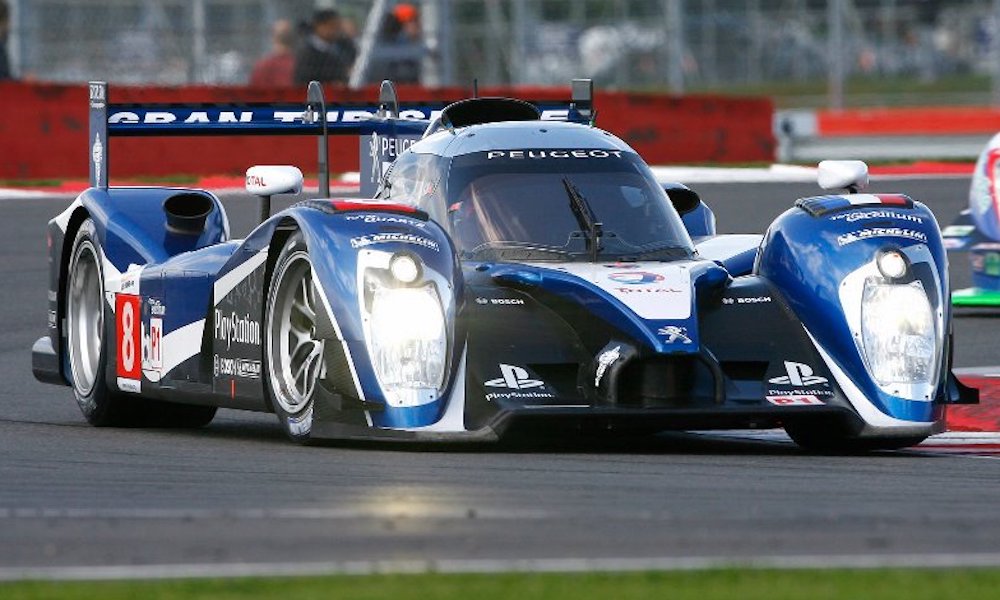
Photo: Peugeot Sport
Peugeot has been working for the last two months to assemble the engineering team for its FIA World Endurance Championship program, according to Groupe PSA Motorsport director Jean-Marc Finot.
The French manufacturer, which is planning to enter top-class competition beginning in 2022, is currently considering whether it will utilize a Le Mans Hypercar or an LMDh prototype, but has prepared as much as it can before next month’s crucial LMDh technical unveiling.
Finot said that LMH has been used as the “reference” for the early stages of the program’s development while the possibility of LMDh has been a more recent revelation.
Peugeot Sport technical director Olivier Jansonnie, who previously worked on the brand’s off-road projects in World Rallycross and the Dakar Rally, will be in charge of the sports car engineering team.
“[Jansonnie] has built 80 percent of his team and now we have enough skill to start the development of the car,” Finot told Sportscar365.
“We started two months ago, so we are on track.
“The aerodynamics is being done at the choice of our supplier (Ligier Automotive) but we still have some decisions to make at the end of March, as soon as we will know which regulations we will carry.”
The March decision refers to the unveiling of the LMDh technical details at Sebring that will lead Peugeot to decide whether it continues down the LMH route or switches to the joint ACO-IMSA global platform.
“We are in the development stage so as soon as the architecture is frozen, we will choose our internal combustion engine,” Finot explained.
“The first step will be to choose Hypercar or LMDh, knowing that Hypercar is our reference project. After, we have to choose our main supplier on electric motors and to choose the architecture of our engine.
“The next decision that we make will be on the architecture of our components after deciding on the [formula] of our car.”
Whether it opts for Hypercar or LMDh, Peugeot is set to benefit from the expertise of fellow Groupe PSA brand DS Automobiles which currently competes in Formula E.
Racing as DS Techeetah, the reigning Formula E teams’ champion’s experience with electric powertrains is expected to feed into the hybrid element of the new sports car.
“Peugeot Sport is part of PSA Motorsport so we will have all of the PSA brands in our facilities; all the skills and experience we have got from Formula E will be injected into the WEC program,” said Finot.
“In our organization, we have one system on the electrified powertrain department, which is working for all PSA programs, so the same engineers that have worked on the Formula E program will also work on the Peugeot Sport WEC program.
“All the experience required with electric formulas will be used in WEC, not only components but also power management and race strategy.”
Ligier to Work on Aero; No ORECA Tie-Up
As reported in French media last week, Peugeot has struck a deal with constructor Ligier Automotive to direct the WEC project’s aero design.
Finot said this had nothing to do with Peugeot’s original “technical partnership” with Rebellion, which ended earlier this month when the Swiss company announced its withdrawal from motorsport after the 24 Hours of Le Mans in June.
“We made a request for a quotation for the aerodynamic development of the car,” he explained.
“As Ligier was the most competitive supplier, we chose them. Ligier is a supplier of Peugeot Sport, so it is not a partnership [like Rebellion].
“It has been chosen only on competitive grounds. This decision is not linked with the end of the partnership with Rebellion. It was decided before.”
According to Finot, Rebellion informed Peugeot “a while ago” that it would be withdrawing from motorsport and that it had enough time to “reorganize [its] business plan” to accommodate the loss of a key partner.
He has downplayed Peugeot’s involvement with ORECA, which recently pulled out of supporting any LMH program to focus on its work as a core LMDh chassis builder.
“I am not informed of a discussion between Peugeot and ORECA,” said Finot. “As I am informed, there were not any discussions in terms of a partnership.
“Of course, I spoke with Hugues de Chaunac of ORECA, but I have spoken to many people in motorsport. There is not anything in terms of a partnership with us and ORECA.”
No Decision on Race Debut Timing
While Peugeot has committed to re-entering sports car racing in 2022, it hasn’t yet decided whether its first race will come at the end of the 2021-22 WEC season – principally in the 24 Hours of Le Mans – or at the start of the 2022-23 campaign.
“We have a homologation of the car for five years, so it’s mandatory to have a robust and reliable car when we will homologate it,” explained Finot, in reference to Hypercar.
“This is our main priority. We will arrive in the championship in 2022, but we will confirm the exact date at the end of 2021 when we will see how we are in terms of development and reliability.
“The main priority is the quality and reliability of the car. It would be a shame to take too many risks to win [on an early debut].”
Finot added that Peugeot will soon start talking to prospective drivers for the program.
“Currently we are on the technical development side and we will start to speak with drivers at the end of spring in 2020,” he said.
“Our first car will run in the summer of 2021 so it’s not a hurry on the driver side. It’s really important that we take time to be the best team we can be.”




















